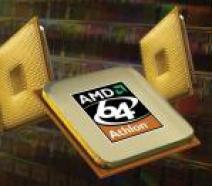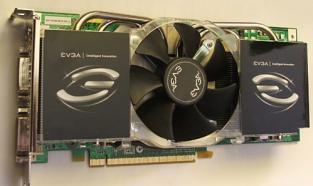OOPS! You forgot to upload swfobject.js ! You must upload this file for your form to work.
At the end of the third quarter, we are waiting for VR-helmets with wireless connection WiGig
![]()
|
xtreview is your : Video card - cpu - memory - Hard drive - power supply unit source |
|
|||
|
|
||||
 Recommended : Free unlimited image hosting with image editor
Recommended : Free unlimited image hosting with image editor
|
POSTER: computer news || AT THE END OF THE THIRD QUARTER, WE ARE WAITING FOR VR-HELMETS WITH WIRELESS CONNECTION WIGIG |
DATE:2017-06-03 |
|
|
At Computex 2017 our colleagues from the popular Taiwanese Internet resource DigiTimes managed to communicate with the leadership of the Canadian company Peraso Technologie. It is the developer of original solutions for the organization of wireless communication standard WiGig. Seven years ago the WiGig alliance merged with an organization that oversees the development of Wi-Fi standards and has since acquired backward compatibility with this wireless technology. The technology operates in the range of 60 GHz, which does not require licensing. The maximum transmission speed at a distance of up to 10 meters reaches 7 Gb / s. Similar or close to this speed are in demand in the light of interest in virtual reality headsets, because the helmet wires from the PC do not add realism during the games in VR. According to representatives of Peraso Technologie, helmets VR with WiGig support for wireless connection will appear on the market at the end of the third quarter this year or at the beginning of the fourth quarter. It's about solutions, the developers of which are closely cooperating with Canadians. By the way, WiGig is in demand not only for VR, but also for gaming consoles, computers, laptops and set-top boxes. The development of Peraso will allow all the above mentioned communication support at speeds up to 2.5 Gbit / s. Today, a set of chips for the organization of WiGig communication in gadgets costs $ 15-20. This inhibits the penetration of technology into smartphones. Broad support for WiGig will be possible if the cost of components for its implementation is reduced to $ 5-6. The Canadian company is also making efforts. Finally, Peraso Technologies admitted that together with manufacturers of equipment for broadband backbone communications, they are developing platforms for organizing WiGig channels at distances over 2.5 km at 2.4 Gb / s in point-to-point mode and at 1 Gbit / S at a range of 1 km in the point-to-multipoint mode. | ||
|
|
||
|
xtreview is your : Video card - cpu - memory - Hard drive - power supply unit source |
|
|
|
|
||
|
Xtreview Support  N-Post:xxxx Xtreview Support        |
AT THE END OF THE THIRD QUARTER, WE ARE WAITING FOR VR-HELMETS WITH WIRELESS CONNECTION WIGIG |
| Please Feel Free to write any Comment; Thanks  |
The new version of GPU-Z finally kills the belief in the miracle of Vega transformation (2017-09-08)
We are looking for copper coolers on NVIDIA Volta computing accelerators (2017-09-08)
The Japanese representation of AMD offered monetary compensation to the first buyers of Ryzen Threadripper (2017-09-08)
TSMC denies the presentation of charges from the antimonopoly authorities (2017-09-08)
Radeon RX Vega 64 at frequencies 1802-1000 MHz updated the record GPUPI 1B (2017-09-08)
AMD itself would like to believe that mobile processors Ryzen have already been released (2017-09-08)
AMD Vega 20 will find application in accelerating computations (2017-09-08)
Radeon RX Vega 57, 58 and 59: the wonders of transformation (2017-09-07)
The fate of Toshiba Memory can be solved to the next environment (2017-09-07)
duo GeForce GTX 1080 Ti in GPUPI 1B at frequencies of 2480-10320 MHz (2017-09-07)
The European Court sent Intel case on abuses for reconsideration (2017-09-07)
In exchange for increasing the stake in the joint venture with Toshiba, Western Digital Corporation is ready to refuse to participate in the auction (2017-09-06)
China banned the creation of new ICO crypto-currency and ordered to return the money for the created one (2017-09-06)
The six-core processor Intel Coffee Lake lit up at a Chinese auction (2017-09-06)
The characteristics of the mobile chip MediaTek Helio P40 are known (2017-09-06)
Lenovo K8 Note with a dual camera and a 4000 mAh battery (2017-09-06)
Delivery of virtual reality seats Roto VR will begin in late October (2017-09-05)
Smart watches will outstrip smart bracelets by popularity (2017-09-05)
Ilon Mask believes that the third world war can begin artificial intelligence (2017-09-05)
AMD processors with Zen architecture of the second generation will raise frequencies and specific performance (2017-09-05)
![]()
To figure out your best laptops .Welcome to XTreview.com. Here u can find a complete computer hardware guide and laptop rating .More than 500 reviews of modern PC to understand the basic architecture


7600gt review
7600gt is the middle card range.
We already benchmarked this video card and found that ...

 geforce 8800gtx and 8800gts
geforce 8800gtx and 8800gts  Xtreview software download Section
Xtreview software download Section  AMD TURION 64 X2 REVIEW
AMD TURION 64 X2 REVIEW  INTEL PENTIUM D 920 , INTEL PENTIUM D 930
INTEL PENTIUM D 920 , INTEL PENTIUM D 930  6800XT REVIEW
6800XT REVIEW  computer hardware REVIEW
computer hardware REVIEW  INTEL CONROE CORE DUO 2 REVIEW VS AMD AM2
INTEL CONROE CORE DUO 2 REVIEW VS AMD AM2  INTEL PENTIUM D 805 INTEL D805
INTEL PENTIUM D 805 INTEL D805  Free desktop wallpaper
Free desktop wallpaper  online fighting game
online fighting game  Xtreview price comparison center
Xtreview price comparison center Lastest 15 Reviews


Rss Feeds
Last News
- The new version of GPU-Z finally kills the belief in the miracle of Vega transformation
- The motherboard manufacturer confirms the characteristics of the processors Coffee Lake
- We are looking for copper coolers on NVIDIA Volta computing accelerators
- Unofficially about Intels plans to release 300-series chipset
- The Japanese representation of AMD offered monetary compensation to the first buyers of Ryzen Threadripper
- This year will not be released more than 45 million motherboards
- TSMC denies the presentation of charges from the antimonopoly authorities
- Radeon RX Vega 64 at frequencies 1802-1000 MHz updated the record GPUPI 1B
- AMD itself would like to believe that mobile processors Ryzen have already been released
- AMD Vega 20 will find application in accelerating computations
- Pre-orders for new iPhone start next week
- Radeon RX Vega 57, 58 and 59: the wonders of transformation
- ASML starts commercial delivery of EUV-scanners
- The older Skylake processors with a free multiplier are removed from production
- Meizu will release Android-smartphone based on Helio P40
- AMD Bristol Ridge processors are also available in American retail
- The fate of Toshiba Memory can be solved to the next environment
- duo GeForce GTX 1080 Ti in GPUPI 1B at frequencies of 2480-10320 MHz
- New Kentsfield overclocking record up to 5204 MHz
- Lenovo released Android-smartphone K8

HALO 3 HALO 3 - Final Fight!

PREY Prey is something you don t often see anymore: a totally unigue shooter experience.

computer news computer parts review Old Forum Downloads New Forum Login Join Articles terms Hardware blog Sitemap Get Freebies


